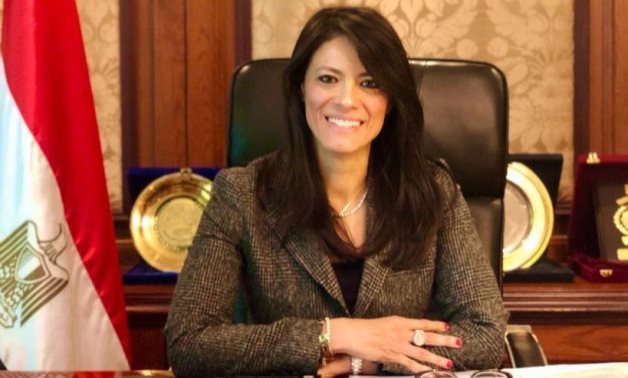
Minister of International Cooperation Rania al-Mashat - FILE
CAIRO - 19 October 2020: Minister of International Cooperation and Governor of Egypt at the World Bank Group, Dr. Rania Al-Mashat, highlighted the government’s efforts to diversify financing for sustainable infrastructure projects as well as its keen interest in green financing, as it recently issued the first green bonds in the Middle East and North Africa worth 750 million dollars.
This was mentioned during her participation at the World Bank’s annual meetings entitled “Beyond Covid - A New World for Investing in the Infrastructure of the Future,” with the participation of Patricia de Lille, South Africa’s Minister of Public Works and Infrastructure; Cora van Nieuwenhuizen, Netherlands’ Minister for Infrastructure and Water; Veronica Scotti, Chairperson of Public Sector Solutions at Swiss Reinsurance; Hans Peter Lankes, VP of Economics and Private Sector Development at IFC; and Imad Fakhoury, Global Director of Infrastructure Finance, PPPs & Guarantees at the World Bank.
The minister noted that Egypt is undergoing a gradual but significant strategic shift towards pursuing private finance and commercial investment for infrastructure prior to the pandemic.
Engaging with the private sector, there is currently more than 1,000 companies and nearly two million Egyptian workers working on national mega projects that are “contributing to a new chapter in Egypt’s economic progress,” the minister noted, these mega projects have provided buffers for Egypt at the outbreak of the COVID-19 crisis.”
Al Mashat listed a few indicators that show Egypt’s efforts in the infrastructure sector around the country, noting that there are 35 projects in the housing sectors with a total of USD 5657 million, 23 projects in the electricity and energy sector with a total of USD 4896 million, 17 projects in the transport sector with a total of USD 4762 million, 6 projects in the petrol sector with a total of USD 1129 million, 10 projects in the irrigation and water resources sector with a total of USD 982 million and 17 projects in Sinai with a total of USD 1950 million.
One notable example is building the world’s largest solar array at the Benban Solar Park in the Aswan Governorate, which employs more than 4,000 people is part of the Egyptian government’s Sustainable Energy Strategy 2035 that aims to produce 20% of electricity from renewable sources by 2022.
The minister added that Egypt has been able to scale up private sector involvement in infrastructure and develop successful public-private partnership models, owing to a national policy encouraging private investments.
In the event of a global downturn, multilateral development banks should boost crisis lending and provide capacity building and technical support to avoid lasting socioeconomic damage and enable a faster recovery, the minister stated.
It is worthy to note that Egypt’s economy is on track to grow by 2% in 2020 and projected to rebound by 5% in 2021 as reflected in EBRD’s Regional Economic Prospects report, making it the only economy across all of the EBRD regions likely to escape recession in the 2020 calendar year, supported partly by large public construction projects and a boom in the telecommunications sector.

Comments
Leave a Comment